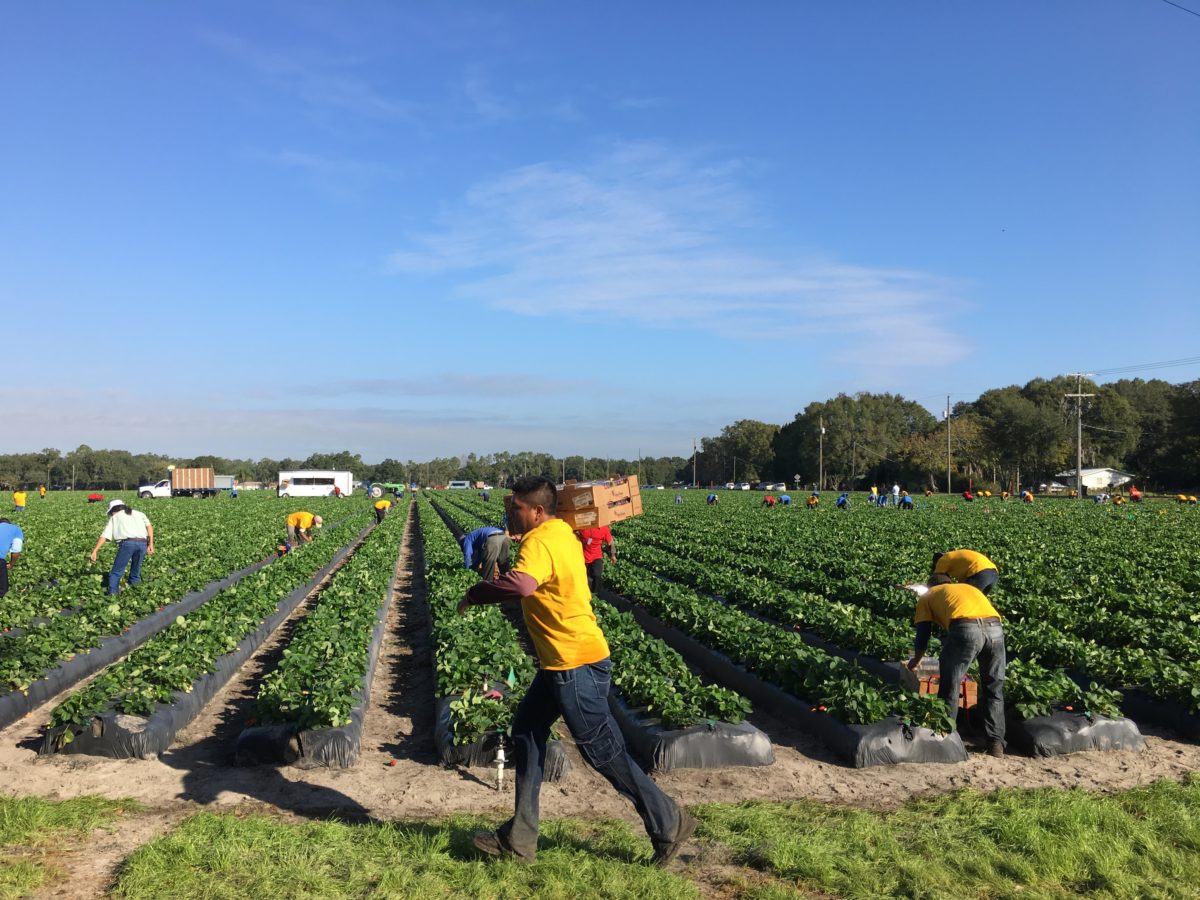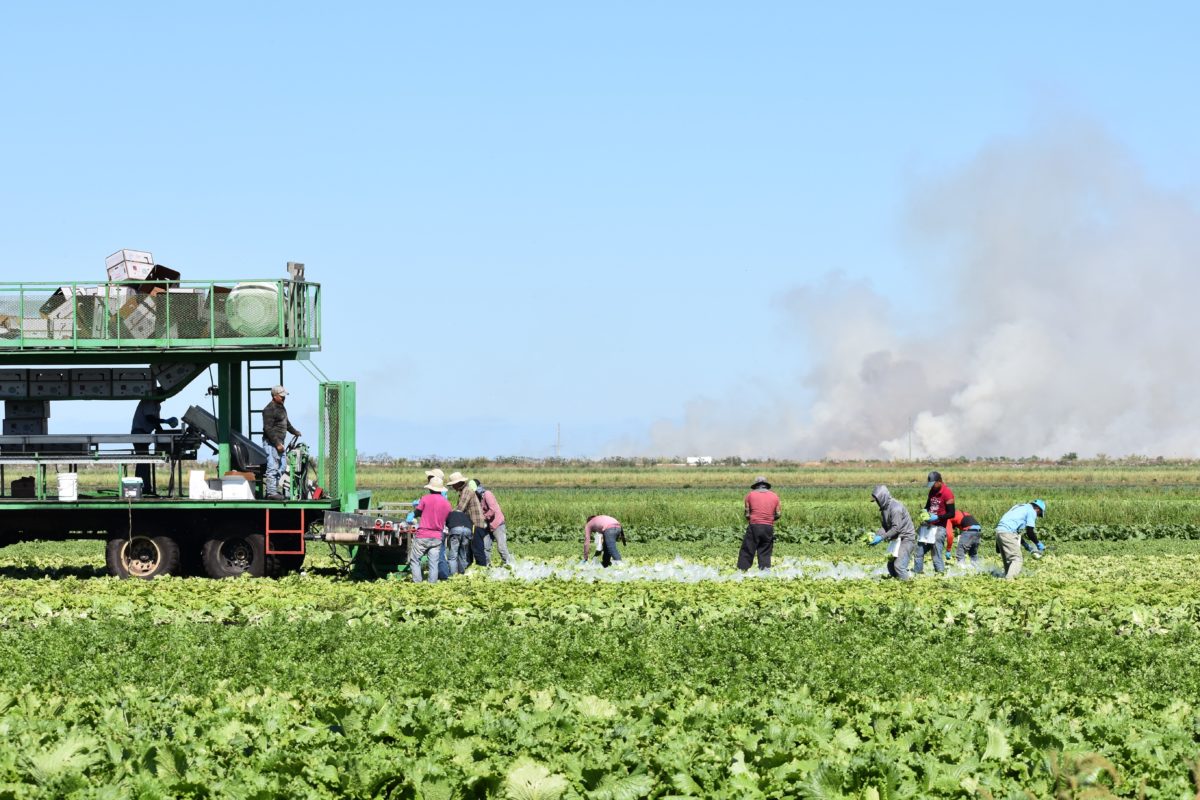Florida blueberry producers just completed their harvests for the 2023 season. But plans are already being made for the ’24 crop. Disease and pest management are key to a successful season next year. University of Florida Institute of Food and Agricultural Sciences scientists encourage growers to scout for algal stem blotch. If farmers observe the disease, they should prune out …
Florida Mango Production, Marketing Much Different in 2023
By Clint Thompson Mango production in Florida looks much different than it did many years ago. Producers are growing varieties not grown in other countries. They are also marketing their crop much differently than in previous years. Jonathan Crane, associate center director and tropical fruit specialist at the University of Florida Institute of Food and Agricultural Sciences Tropical Research and …
South Florida Pest and Disease Hotline: Aphid Pressure High in Some Areas
Aphid pressure varies across southern Florida. There are low populations in some areas, while there are high populations in others, according to the South Florida Pest and Disease Hotline. Pressure is low to moderate across Southwest Florida in multiple crops. Pressure on corn varies from moderate to high in the Everglades Agricultural Area, though recent rainfall appears to have negative …
Out of Business: Gloomy Future for Florida Blueberry Farmers
By Clint Thompson Florida’s recent lack of success in profiting from its blueberry crop has prompted some farmers to leave the business altogether. “I already know of three farms for sale. I think you’re going to see a couple of people go out of business,” said Ryan Atwood, who lives in Mount Dora, Florida and farms 56 acres of blueberries, …
FFVA Applauds Proposed House Bill Addressing Immigration Reform
A new bill introduced last week by members of the U.S. House of Representatives addresses ag labor reform that will impact specialty crop producers in the Southeast. U.S. Representatives Veronica Escobar (D-TX) and Maria Salazar (R-FL) introduced the Dignity Act, a bipartisan immigration reform bill that aims to fix the immigration system. It will secure the border, mandate E-Verify nationwide …
South Florida Pest and Disease Hotline: Caterpillar Pressure Varies in Florida
Caterpillar pressure varies across southern Florida, according to the latest release of the South Florida Pest and Disease Hotline. Scouts report low to moderate infestation levels of beet armyworms and loopers in the Southwest Florida region. Scouts have also indicated a high level of corn earworm egg hatch outs in some fields. An increase of beet armyworm pressure was reported …
Protecting Against ‘Wildfire’: Melon Growers Should Be Wary of Downy Mildew
By Clint Thompson Recent rainfall events in North Florida have watermelon producers on high alert from disease pressure building up. Bob Hochmuth, University of Florida Institute of Food and Agricultural Sciences (UF/IFAS) Regional Specialized Extension agent in Live Oak, Florida, cautions growers against downy mildew disease as harvests continue across the region. “I expect that the weather pattern here is …
Florida Blueberry Grower: “Wasn’t a Good Year for Florida”
By Clint Thompson Blueberry season has all but ended in Florida. Growers are taking stock of the season, which was impacted by the Christmas freeze event and a couple of freezes in March. One producer believes it wasn’t a good year for Florida. “We were down on our yield. We were a little late because of some of those freezes. …
Vegetable Farmer: SB 1718 is Going to be Very Impactful in South Florida
By Clint Thompson As if finding an adequate labor force wasn’t hard enough for specialty crop producers in Florida, it will likely become even more challenging starting July 1. When Florida Gov. Ron DeSantis signed SB 1718, it marked a significant crackdown on illegal immigration in the state. But it could also devastate many of the state’s farming operations in …
Harvest Time: North Florida Watermelon Growers Take Advantage Following Early Plantings
By Clint Thompson North Florida watermelon growers hoping to take advantage of an early harvest by planting this year’s crop in late February are enjoying the fruits of their labor. Harvests are well under way across the Suwanee Valley Region. Bob Hochmuth, University of Florida Institute of Food and Agricultural Sciences (UF/IFAS) Regional Specialized Extension agent in Live Oak, Florida, …











